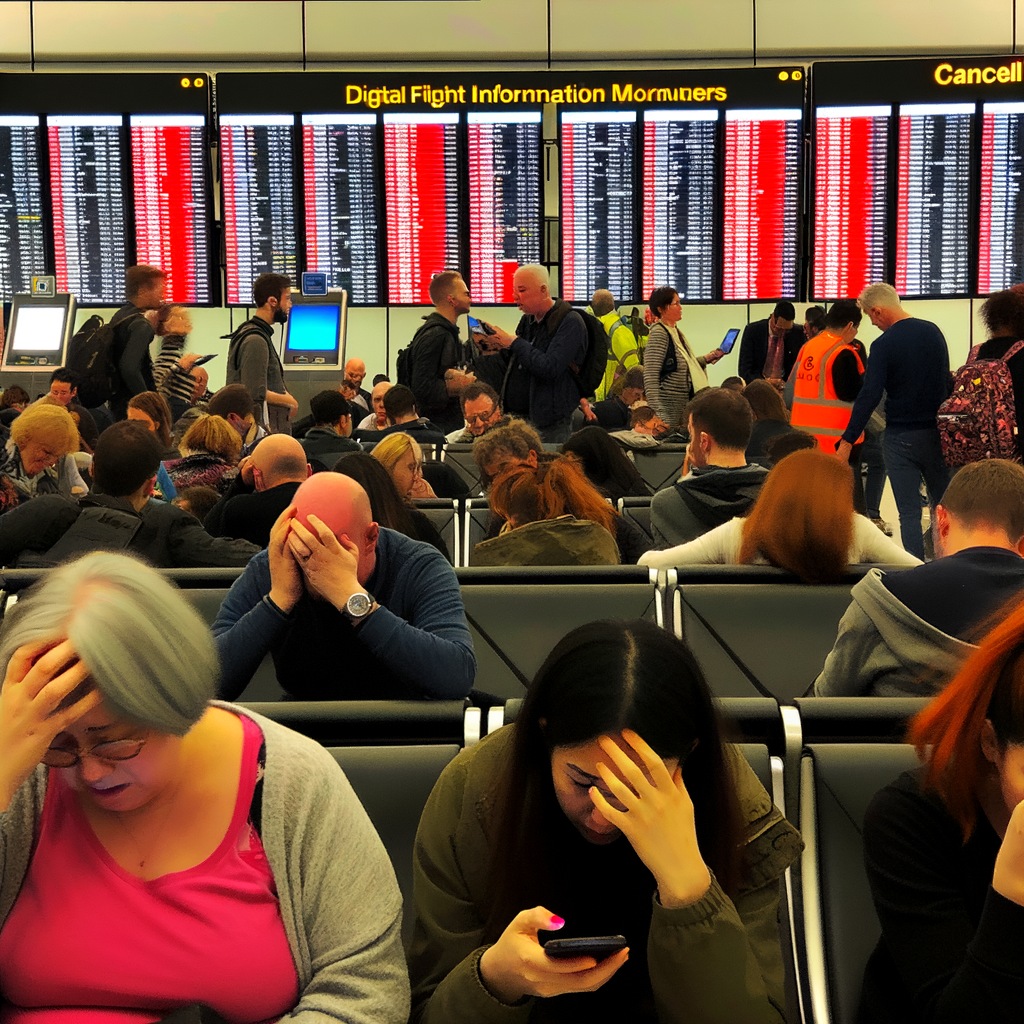Air Travel Faces Fewer Delays and Cancellations on Saturday
A Refreshing Change for Travelers
The air travel industry witnessed a significant improvement on Saturday, offering a respite from the usual string of delays and cancellations. Passengers across various airports experienced fewer disruptions, making for a much smoother travel experience. This unexpected change comes after a series of technological outages and operational mishaps that had previously plagued the industry.
Root Causes of Previous Outages
In recent months, the airline industry has grappled with multiple issues that have caused extensive flight delays and cancellations. Among the contributing factors were:
- Technical glitches affecting airline reservation systems
- Strikes and labor shortages impacting crew availability
- Adverse weather conditions disrupting flight schedules
- Increased travel demand leading to operational inefficiencies
Each of these factors compounded to create a landscape of unpredictable travel for many passengers. However, industry insiders indicate that recent measures have been taken to address these challenges head-on.
Effective measures Implemented
1. Technological Upgrades
Airlines have invested heavily in upgrading their IT infrastructure to minimize the risk of technical outages. These upgrades include:
- Enhanced cybersecurity measures
- Redundant systems to ensure continuous operation
- Real-time monitoring tools for swift issue resolution
These improvements not only enhance reliability but also bolster passenger confidence amidst growing concerns around tech reliability.
2. Workforce Optimization
To mitigate the impact of labor shortages, airlines have implemented robust hiring strategies and employee retention programs. Some of the tactics include:
- Competitive salaries and benefits
- Flexible work schedules
- Training and development programs
By ensuring a motivated and well-staffed team, airlines can better manage operational demands and reduce the likelihood of flight disruptions.
3. Improved Communication Channels
Proactive communication is key to keeping passengers informed about their travel plans. Airlines have ramped up their communication strategies, using technology to provide real-time updates through:
- Mobile apps with push notifications
- Email and SMS alerts
- Dedicated customer service hotlines
These initiatives ensure passengers are always in the loop, reducing anxiety and enhancing overall travel satisfaction.
Passenger Feedback and Experience
Many travelers reported positive experiences on Saturday, noting a marked improvement in both boarding processes and in-flight amenities. Here’s what some passengers had to say:
- John K. who flew from New York to Los Angeles remarked, “This was the smoothest flight I’ve had in months. No delays, no fuss—everything was seamless.”
- Mary S., traveling from Chicago to Miami, mentioned, “The new communication updates were a game changer. I knew exactly what to expect at every step.”
These testimonials underscore the significant strides airlines have made to improve passenger experiences.
Future Expectations
As the airline industry continues to adapt and innovate, passengers can look forward to more reliable air travel. Here are some anticipated developments:
- Further advancements in AI and machine learning for predictive maintenance of aircraft
- Expanded use of biometric technology to streamline boarding and security checks
- Increased focus on sustainability and eco-friendly operations
These future initiatives are poised to create a more efficient, safe, and eco-friendly travel experience.
Travel Tips for Passengers
While improvements are underway, travelers can still take proactive steps to ensure smooth journeys. Here are some tips:
- Book flights during off-peak hours to avoid potential delays
- Keep essential items and documents in carry-on luggage
- Download airline apps for real-time updates
- Arrive at the airport well in advance of your flight
- Stay informed about weather conditions and potential impacts on travel
By following these tips, passengers can minimize stress and enjoy a more pleasant travel experience.
Conclusion
The air travel industry’s ability to minimize delays and cancellations on Saturday is a positive indicator of progress. Continued efforts in technology, workforce optimization, and communication are essential for maintaining this upward trend. As airlines and passengers alike adjust to the new normal, the future of air travel looks promising. We’re looking forward to more days like Saturday, where air travel is smooth, efficient, and enjoyable.
Thank you for reading our blog! Stay tuned for more updates and travel tips.



